-
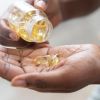 +23 +3
+23 +3Vitamin D may reduce ovarian cancer's ability to spread to other organs, lab study suggests
The study found vitamin D keeps cancer cells from transforming mesothelial cells, or those found outside organs, into less protective versions.
-
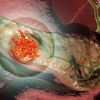 +22 +1
+22 +1Individualised mRNA vaccine shows promise in pancreatic cancer patients
Phase I study shows that mRNA-based vaccines can be used to stimulate T cells to recognise neoantigens in pancreatic cancer patients.
-
 +9 +2
+9 +2"First Time In History": Cancer Vanishes For Every Patient In Drug Trial
A small group of people with rectal cancer just experienced something of a miracle as their cancer simply vanished after an experimental treatment.
-
 +3 +1
+3 +1Weight Loss Tied to a Dramatic Drop in Cancer Risk, New Study Shows
Researchers found that subjects who underwent weight loss surgery also showed a sharp decrease in their likelihood of dying from cancer.
-
 +12 +1
+12 +1Experimental gene therapy appears to have helped one patient with advanced pancreatic cancer
A new gene therapy shrank the tumors of a woman with pancreatic cancer. Researchers think it has the potential to benefit millions more people.
-
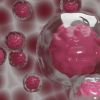 +11 +2
+11 +2A combination of three simple treatments may reduce invasive cancer risk by 61% among adults aged 70+
A new study published in Frontiers in Aging found that a combination of high-dose vitamin D, omega-3s, and a simple home strength exercise program (SHEP) showed a cumulative reduction by 61% in cancer risk in healthy adults aged 70 or older. It is the first study to test the combined benefit of three affordable public health interventions for the prevention of invasive cancers. Following future studies, the results may impact the future of cancer prevention in older adults.
-
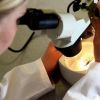 +4 +1
+4 +1New cancer treatment uses body’s cellular waste disposal to flag harmful proteins
Scientists are perfecting a new anti-cancer treatment that exploits the body’s own cellular waste disposal system. Some drugs are already producing promising results, and the number of new medicines is expected to rise in the near future with the opening of a British centre dedicated to using the technique.
-
 +16 +3
+16 +3Scientists Discover Ants Can Be Trained to 'Sniff Out' Cancer
Ants could end up being cheaper and easier to train for cancer detection than dogs.
-
 +23 +5
+23 +5Cancer drug uses an iron sensor to switch on in deadly tumors
Modern medicine has provided many cancer drugs with life-saving capabilities, but often toxic effects on healthy cells and resulting side effects stop them from reaching their full potential. Modifications to an existing drug promise to overcome this problem for a common and deadly form of cancer, with the scientists hailing the breakthrough as a potential "home run" for next-generation treatments.
-
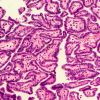 +24 +6
+24 +6New research casts doubt on a cornerstone of thyroid cancer treatment
Emerging research casts doubt on whether radiation therapy after surgery actually benefits patients with certain thyroid cancers.
-
 +12 +2
+12 +2"Drug factory" beads implanted in mice take out tumors within a week
Among the many challenges in treating tumors is the difficulty in getting anti-cancer drugs to the right locations, and in the right amounts. A new type of implant developed at Rice University tackles both these issues, carrying the cellular machinery needed to produce and deliver continuous doses of anti-cancer compounds, and doing so with such potency that they took out 100 percent of ovarian tumors in mice in the space of a week.
-
 +14 +2
+14 +2Vegetarians have 14% lower cancer risk than meat-eaters, study finds
Oxford University research also finds pescatarians have 10% reduced risk compared with those who eat meat regularly
-
 +12 +2
+12 +2BioNTech's mRNA Cancer Vaccine Has Started Phase 2 Clinical Trial
This summer, Omar Rodriguez, 47, was diagnosed with stage 3 colon cancer. And even though he had surgery to get rid of the tumor, there's a 70 percent possibility that it will return within the next five years.
-
 +15 +2
+15 +2Immune cells in prostate can be activated to destroy cancer cells, research shows
The study, funded by the Prostate Cancer Foundation, found immune cells in prostate tissue could be activated to destroy cancer cells. The research was conducted by Dr Ellie-May Jarvis as part of her PhD with the Malaghan Institute in Wellington. It has been published in the medical journal Frontiers in Immunology.
-
 +15 +2
+15 +2Fatty acid found in palm oil linked to spread of cancer
Scientists have shown how a fatty acid found in palm oil can encourage the spread of cancer, in work that could pave the way for new treatments. The study, on mice, found that palmitic acid promoted metastasis in mouth and skin cancers. In future, this process could be targeted with drugs or carefully designed eating plans, but the team behind the work cautioned against patients putting themselves on diets in the absence of clinical trials.
-
 +12 +1
+12 +1Just 5 Hours of Moderate Exercise a Week Cuts Your Cancer Risk
Just a few hours a week of moderate exercise may reduce your risk of cancer, a new study suggests. If Americans got the recommended five hours a week of moderate-intensity physical activity, more than 46,000 cancer cases could be prevented in the United States each year, according to the report.
-
 +17 +2
+17 +2New treatment destroys head and neck cancer tumours in trial
A new cancer treatment can wipe out tumours in terminally ill head and neck cancer patients, scientists have discovered. In a landmark trial, a cocktail of immunotherapy medications harnessed patients’ immune systems to kill their own cancer cells and prompted “a positive trend in survival”, according to researchers at the Institute of Cancer Research (ICR), London, and the Royal Marsden NHS foundation trust.
-
 +10 +1
+10 +1Iconic 'SNL' comedian Norm Macdonald dies at 61 | ABC7
-
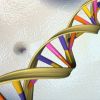 +14 +1
+14 +1Britain begins world's largest trial of blood test for 50 types of cancer
Britain's state-run National Health Service will on Monday begin the world's biggest trial of Grail Inc's flagship Galleri blood test that can be used to detect more than 50 types of cancer before symptoms appear.
-
 +4 +1
+4 +1Men who ejaculate 21 times a month slash their risk of prostate cancer
Men who ejaculate more often have a lower risk of developing prostate cancer, a new study finds. Researchers from Harvard University analyzed data from nearly 32,000 men and found that ejaculating at least 21 times a month cut the risk of developing the cancer by one-third.
Submit a link
Start a discussion




















